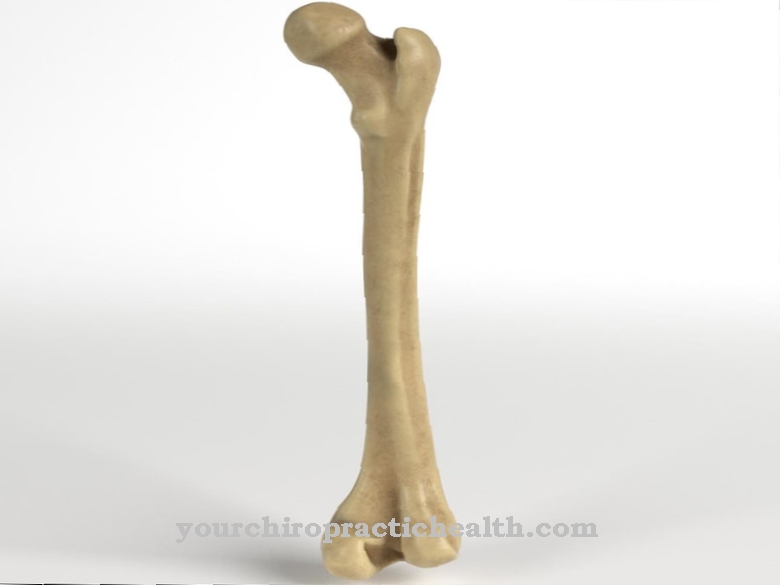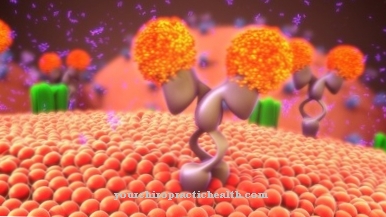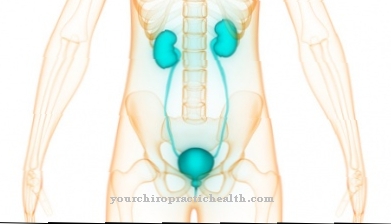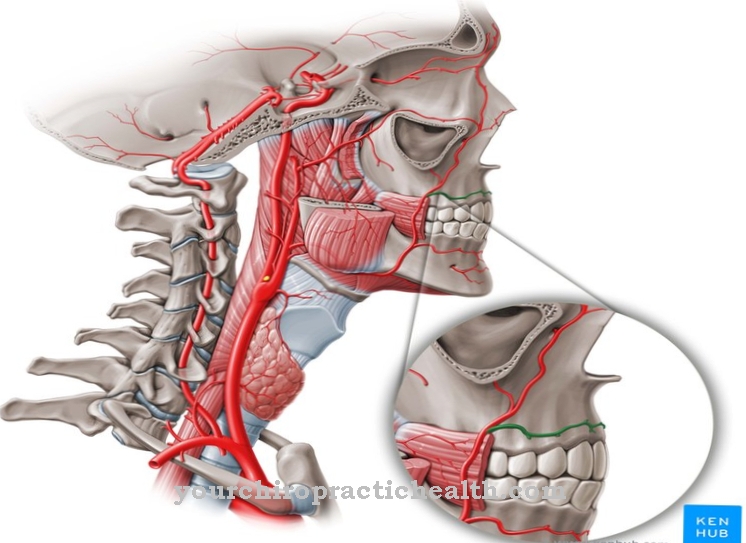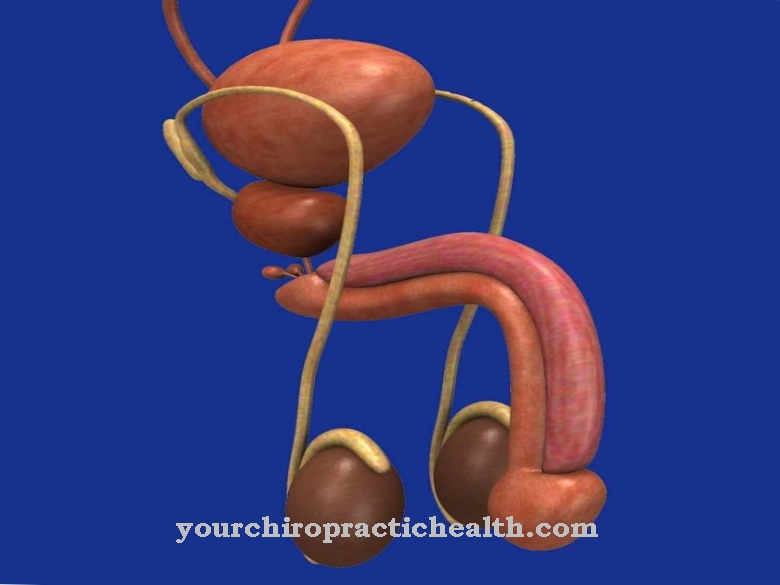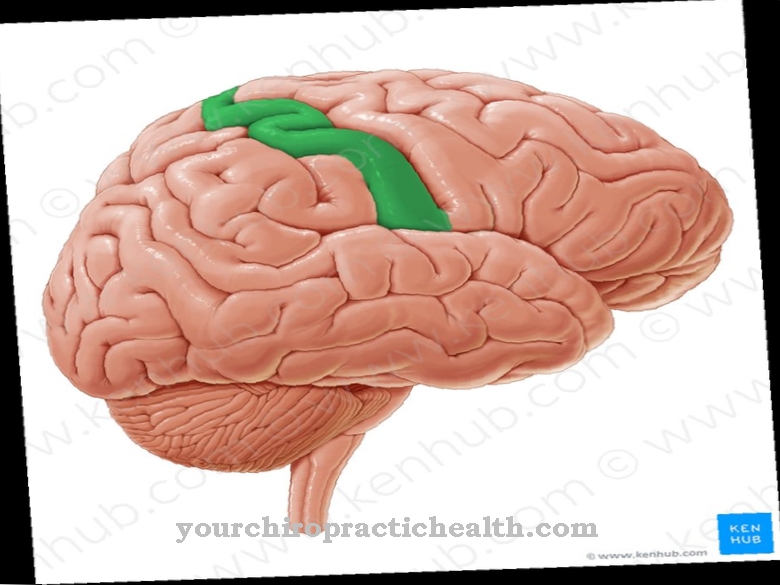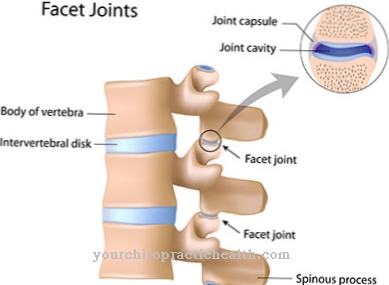Kidney disease are often underestimated. The kidneys in the human body perform a variety of vital functions. These include regulating the water balance, blood pressure and acid-base balance.
What are kidney diseases?

© krispetkong - stock.adobe.com
Kidney disease can be life threatening. They occur when the kidneys function properly, with the result that they no longer work properly. In severe cases, kidney failure occurs. This means that the kidneys fail in life-sustaining functions. This can be done in a chronic or acute way. Both kidneys do not necessarily have to be affected by an underfunction.
causes
The causes of acute and chronic kidney failure are diverse and very different. Acute kidney failure manifests itself in a sudden lack of blood flow to the kidneys. The insufficient blood flow can result from sudden blood loss, a drop in blood pressure or a circulatory shock.
This also includes possible poisoning or other damaging effects on the kidneys. The tissues of the kidneys can also be damaged by ingestion of drugs or fungi in the body, which can result in acute kidney failure.
For example, those who continually drink too little fluid and eat improperly contribute to the development of kidney stones, which in addition to possible bladder stones or urinary stones can be other causes of kidney failure.
If the human organism is affected by a tumor, attention must always be directed to the function of the kidneys. Because a tumor can cause immediate kidney failure.
Inflammation of the kidneys is often caused by pre-existing diseases that weaken the human body in many ways. Diseases such as diabetes, hepatitis, cancer, autoimmune diseases or heart inflammation can cause one or both kidneys to malfunction.
However, kidney disease can also be hereditary. This is often the case with kidney cysts. Only if there are several cysts can the functioning of the kidneys be impaired. In this case, it is referred to as a cyst kidney, which should be treated by avoiding.
Symptoms, ailments and signs
Basically, the first symptoms are expressed in a change in the urine. The change may be in the amount of urine or its color. In the first case, the amount of urine may either be extremely reduced or greatly increased. associated with a cloudy color or blood in the urine.
Inflammatory reactions in the kidney function can express themselves particularly in secondary diseases. However, the main symptom of impaired work of the kidneys is complete lack of or reduced urine production.
As a result of the impairment of the functioning of the kidneys, metabolic products and toxins can no longer be excreted from the human organism. This does not have to be expressed directly at the beginning and the person concerned does not notice anything at first. Chronic kidney failure in particular is initially overlooked because it initially proceeds without symptoms.
The following symptoms can only manifest themselves as the disease progresses or in the progressive disorder of kidney function:
- Water retention (edema) in the legs or lungs
- Arrhythmias, heart failure or inflammation of the pericardium
- Pain in the bones
- high blood pressure
- Seizures
- Shortness of breath / hyperventilation
- increased concentration of certain metabolic products in the blood. These include, for example, creatinine, urea or uric acid
There are unspecific symptoms that match other clinical pictures. But they can also indicate a kidney malfunction.
- Weaknesses in concentration
- decreased performance
- fatigue
- increased headache
- Nausea and vomiting
- no feeling of hunger
Complications
In acute kidney failure, complications can spread to the entire organ system of the human body. Complications can particularly affect the lungs, heart, or brain.
Lung: Pulmonary edema can occur, which is colloquially known as the water lung. In this case, blood fluid leaks from the smallest vessels. This fluid flows into the intercellular space and into the alveoli of humans. This prevents adequate absorption of oxygen into the bloodstream. The person concerned gets short of breath, may get rattling breath or frothy sputum.
Heart: Heart failure can occur. If there is high blood pressure in the body's circulation, arterial hypertension or high blood pressure in the pulmonary circulation can occur. This means that the blood pressure in the arterial vessels is chronically increased. Heart failure can also arise as a result of overhydration in the event of a disruption of kidney function.
The cardiac disorder can lead to a backlog in the venous circulation, with the possible consequences of an inflammation of the stomach lining, the development of an ulcer or a loss of blood in the interior of the digestive tract.
Brain: With cerebral edema or water retention in the brain, neurological complications can occur. This can lead to seizures or reduced alertness.
When should you go to the doctor?
The problem is that in the early stages of kidney disorder, there are no symptoms at first. The presence of unspecific symptoms is often attributed to other causes. The possibility of a dysfunction of kidney function is rarely or not at all thought. But early warning signals can show up in an examination of the urine.
Many general practitioners will do a routine blood test to check the kidneys. During this examination, the creatinine level is checked.
A person affected should definitely consult a doctor if the symptoms shown are already clearly evident. At least the key symptom should not be ignored. See a doctor if you produce very little or excessive urine. In addition, the person concerned usually knows what various diseases he is suffering from and what effects these can have.
If there is knowledge of an illness, a doctor's explanation will usually have already taken place. This is particularly true with regard to the sequelae of an existing disease that could result in kidney failure.
diagnosis
If a kidney disorder is suspected, this can be determined by a blood test. The blood test determines whether the kidneys are filtering the urine properly. If there is an insufficiency, the glomerular filtration rate is also reduced. This rate indicates the total volume of primary urine. The total volume is made up of both kidneys together.
The test also provides information about the inflammation values as well as information about the creatinine value.
The disadvantage of a simple blood test may be that damage to the kidneys is only indicated when at least fifty percent of the functional activity of the kidneys has long been lost. Therefore it makes sense to have a microalbumin test done. This test focuses on traces of protein in the urine, which are present early in the course of the disease when the kidneys are disrupted.
If the suspicion solidifies, it is advisable to consult a kidney disease specialist. This is a nephrologist who can ultimately determine the kidney disorder.
Treatment & Therapy
The nephrologist will decide on the required treatment and therapy depending on the type of kidney disease. Not everyone with kidney disease becomes a dialysis patient straight away. In many cases, various drugs are suitable for medical treatment. If the inflammation in the kidneys is already strong, the specialist will administer glucocorticoids or an immunosuppressant to the patient. These agents help to suppress inflammatory reactions in the human organism.
For acute kidney damage, treatment consists of a diet that is low in salt and protein. In combination with a balanced fluid intake and appropriate medication, symptomatic complaints are effectively alleviated in this way.
If the person suffering from renal insufficiency is already in the advanced stages of acute kidney failure, dialysis can become inevitable. Dialysis is an artificial blood wash. In severe cases, a kidney transplant may be necessary.
The therapy of chronic kidney failure consists mainly in the administration of medication, for example against high blood pressure. In addition, urinary tract infections are treated and the blood sugar level is set correctly. Therapy is aimed at preventing the progression of kidney disease. The patient himself is encouraged to change his way of life.
Outlook & forecast
There is no cure for chronic kidney disease. People who have kidney disease are at increased risk of having a stroke or heart attack. Diabetics and the elderly are particularly at risk.
The prognosis here depends on the course of the kidney disease, the underlying causes and underlying diseases. A prognosis can fail if the kidney weakness is recognized early. The earlier the disease is detected, the sooner the treatment options will improve.
However, it should be emphasized that acute kidney weakness is often fatal. The actual cause of death can then be traced back to the underlying underlying disease, such as shock in the case of a sepsis or a heart attack. The prognosis generally worsens when other organs are already damaged.
A body suffering from kidney damage is particularly susceptible to pathogens. The most common cause of death is therefore existing infections.
However, kidney function can recover after acute kidney weakness if fluid and blood loss and blood pressure have been successfully treated. In this case, it is possible that the kidneys can get back to work.
In the severe case of a dialysis patient, the kidney weakness can no longer recover. Dialysis remains a lifelong companion.
Regular use of medication that has already been prescribed is necessary to improve the course of the disease. The respective medical instructions must be strictly observed.
prevention
Prevention can be achieved through a healthy lifestyle. This not only includes a healthy diet, but also an adequate intake of fluids. A person should consume at least two liters a day. Adequate fluid intake is of great importance for the functioning of both the kidneys and the rest of the organs.
In addition to adequate hydration, salt and fat should only be taken in moderation with food. The consumption of protein-rich foods should also be restricted.
If someone is already taking medication for another illness, care should be taken to ensure that they do not harm the kidneys. A doctor can provide information and name possible alternatives.
Aftercare
Follow-up treatment depends on the type and severity of kidney disease. Scheduled follow-up examinations following a provisionally completed or terminated therapy serve to identify complications or consequential damage in good time and to treat them effectively, to adapt long-term therapy to the course of the disease and to support those affected in maintaining their quality of life.
In the case of chronic kidney disease, after a kidney transplant or during dialysis treatment, close check-ups are necessary. Follow-up care measures include blood pressure checks, urine tests, creatine tests, kidney function tests, and ultrasound exams. Medical rehabilitation sports can also be part of the follow-up treatment.
In addition to regular follow-up examinations, patients are also advised on work-related or psychological problems, depending on the degree and stage of kidney disease. In certain cases, for example, psychotherapeutic support can be useful. The attending physician determines the intervals at which follow-up care takes place based on the original findings. In order to carry out further treatment, doctors hold intensive consultations with the patient in order to provide important information on paying attention to particular details.
Long-term follow-up care is necessary in the case of an underlying disease or kidney failure. It is also important that patients with diseases such as diabetes receive additional support, such as lifestyle changes, in order to reduce the risk of cardiovascular problems. The doctor discusses all the details of follow-up treatment for kidney disease with his patient.


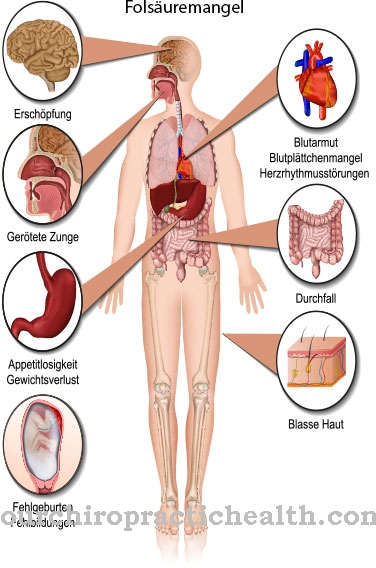
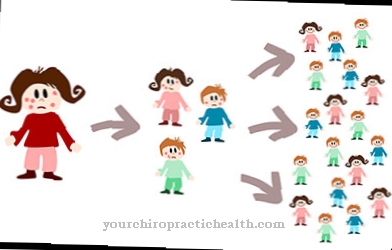
.jpg)
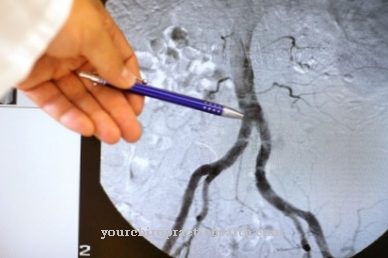
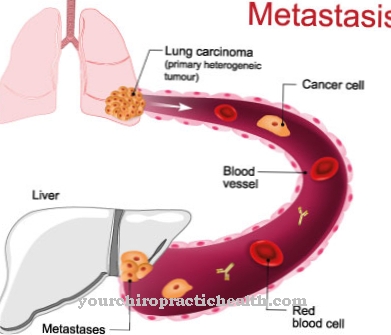

.jpg)



